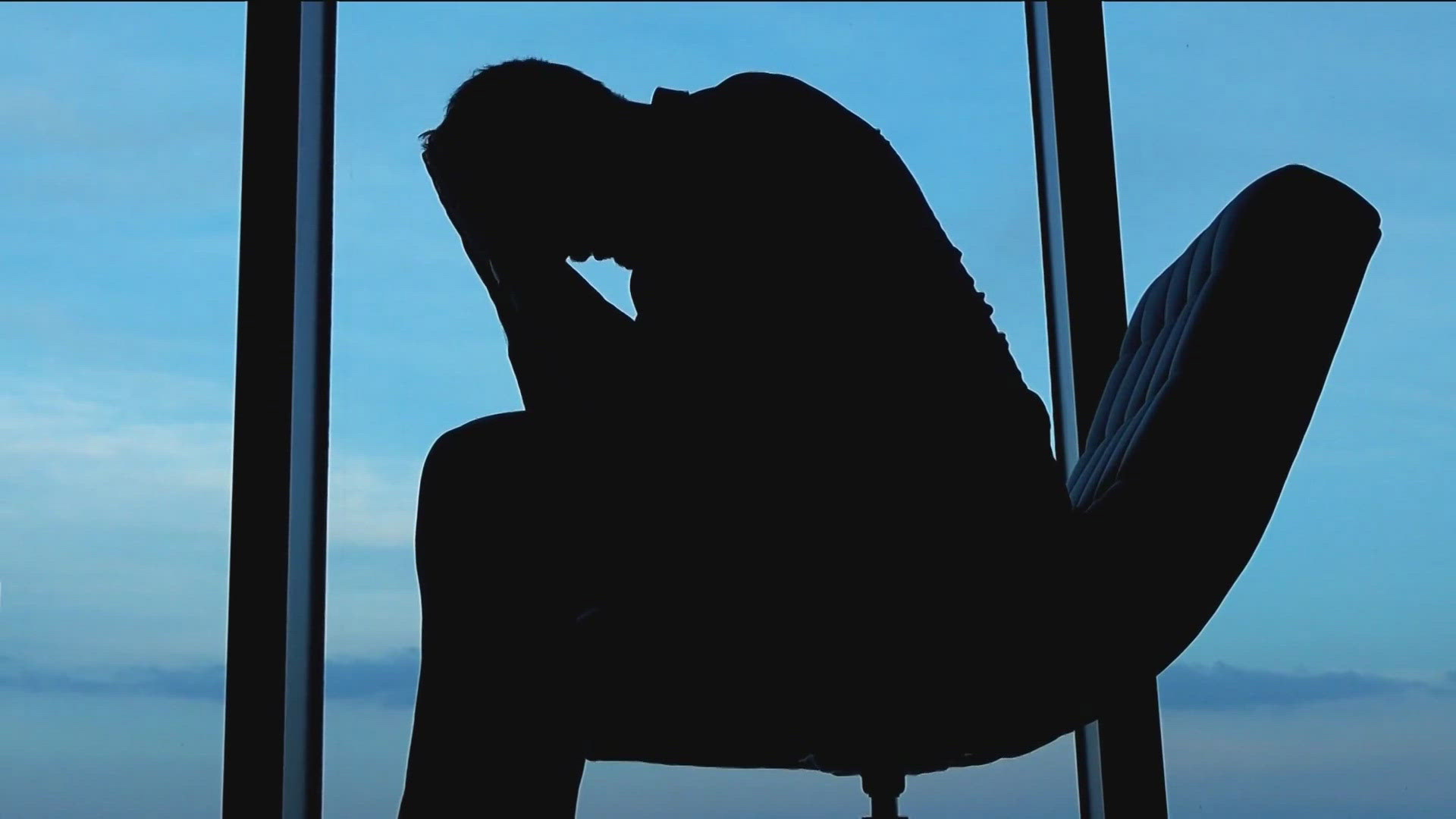BOISE, Idaho — As the fall season rolls in, the "fallback" daylight-saving time change comes with the season.
Sunday, Nov. 3, clocks will be set back by one hour. This means we will gain an extra hour of sleep on that day but lose an hour of daylight every day until we once again "spring forward" with the time change next year.
Starting Sunday, sunsets will be an hour earlier than they are now, slowly shortening daylight over the next several months.
According to the National Institute of Mental Health, Seasonal Affective Disorder (SAD) can be triggered specifically in colder, darker, and wetter months.
A local doctor at Saint Alphonsus in Boise spoke with KTVB on how SAD is impacting the Treasure Valley community.
Doctor Crystal Larson, a psychiatrist and interim director at Saint Alphonsus Outpatient Behavioral Health, said SAD is a type of depression influenced by seasonal changes.
SAD is differentiated from general depression by its time-limited nature and impact on daily functioning.
“I definitely encourage people to think about getting outside more often. Think about how much light you're getting," Doctor Larson told KTVB. "Think about the things like your diet and your sleep that can help prevent this from happening or from becoming as severe as maybe it has been in the past.”
Doctor Larson said she sees an increase in SAD patient cases starting in the fall.
Symptoms can include having a hard time getting out of bed, feeling less energetic, and having more difficulty fulfilling everyday activities like work and household responsibilities.
"People just start to feel a little more down than as usual, have a harder time getting out of bed, just don't quite feel like themselves," Larson said. "The literature say that the farther away from the equator you get, the higher the percentage of the population that will have seasonal affective disorder."
One recovering SAD patient spoke with KTVB and she said if it's not managed, symptoms can get extreme.
"It made my my cycles of depression much longer, to the point where is debilitating, where I wasn't leaving the house. During the winter," Wendy Pelletier said. "I went from being in bed for two, three months at a time, not being able to get out of bed at all."
Doctor Larson recommends speaking with a primary care doctor, if you have any concerns or begin to recognize symptoms.
Resources and methods to prevent and fight seasonal depression include exercise, maintaining a healthy diet, adequate sleep, and more treatments that can be provided by primary care doctors.
Help is always available. Call or text the Idaho Crisis & Suicide Hotline 988, if you are struggling with suicide, a mental or emotional problem, having trouble with drugs or alcohol, or having family or relationship problems.
Someone is always on the other end of the line. You can call for yourself or someone you care about.
Crisis support is available 24/7, every day of the year.

